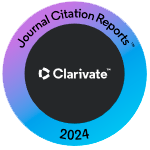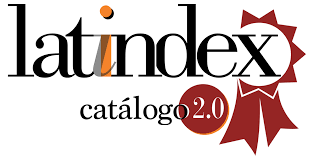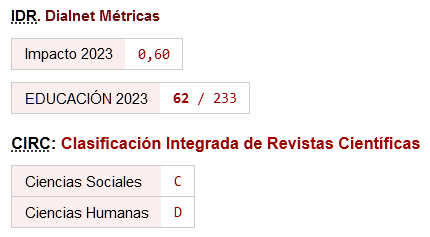Three continents, three countries
the remote education by higher education students in the pandemic time
DOI:
https://doi.org/10.46661/ijeri.7436Keywords:
Emergency Remote Education, Students, Higher Education, Degree SatisfactionAbstract
The epidemiological situation on a global scale caused by the COVID-19 pandemic has led to the general confinement of the population and the need to close the physical spaces of schools of all levels of education. To overcome this, it was necessary to adopt emergency measures, including Emergency Remote Education (ERE), using technologies to interact synchronously with students. Besides, it was also required to reconfigure educational practices and develop skills in digital literacy to enable the continuity of educational experiences, respecting isolation but maintaining the interaction of teachers and students. This situation has not met borders, so we consider it essential to collect information about the degree of student satisfaction with the (ERE) caused by the COVID-19 pandemic in three countries (Portugal, Brazil and Turkey), located on three continents (Europe, America and Asia). Data were collected in 2019/2020 and 2020/2021 by the researchers who are conducting the study from different countries. The authors use a survey created on Google Forms to collect data, assuring the confidentiality of the data collected. We obtained 566 valid responses in the three countries: Portugal 140, Turkey 359 and Brazil 67. From this collection and subsequent statistical analysis, we can show, from the results obtained, that the models chosen in the three countries did not please in a unanimous way all the students involved. There are significant differences in access, knowledge of the platforms used and even in the methodologies used by different teachers concerning countries. On the contrary, about the possibility of moving to a permanent online model, there is unanimity, verifying from the opinions that face-to-face education is not replaceable by the model that has been used over the last two years.
Downloads
References
Amorim, V., Piza, C., & Lautharte, I. (2020). The Effect of the H1N1 Pandemic on Learning : What to Expect with COVID-19. World Bank, Washington, DC. © World Bank. https://openknowledge.worldbank.org/handle/10986/33997.
Angrist, N., Bergman, P., Brewster, C., & Matsheng, M. (2020). Stemming learning loss during the pandemic: A rapid randomized trial of a low-tech intervention in Botswana. CSAE Working Paper WPS/2020¬13. https://doi.org/10.2139/ssrn.3663098
Azevedo, J., Hasan, A., Goldemberg, D., Iqbal, S., & Geven, K. (2020). Simulating the potential impacts of COVID-19 school closures on schooling and learning outcomes: A set of global estimates (The World Bank, 2020). https://doi.org/10.1596/1813-9450-9284
Borges, M., Dias, C., & Santos, C. (2020). COVID-19 and online learning in higher education. A case study of students from Portalegre and Beja Polytechnic Institutes. IJERI: International Journal of Educational Research and Innovation, (15), 317–325. https://doi.org/10.46661/ijeri.5253
Brazil - Ministry of Health (2020). What is coronavirus? (COVID-19). https://coronavirus.saude.gov.br/
Dhawan, S. (2020). Online learning: A panacea in the time of COVID-19 crisis. Journal of Educational Technology Systems, 49(1), 5–22. https://doi.org/10.1177/0047239520934018.
Dursun, M., Yarayan, Y. E., Ari, Çagri, Ulun, C., & Adaş, S. K. (2021). Covid-19 in Turkey: Leisure Boredom, Psychological Resilience, Physical Activity and Emotional State. IJERI: International Journal of Educational Research and Innovation, (15), 460–486. https://doi.org/10.46661/ijeri.5588
Engzell, P., Frey, A., & Verhagen, M.D. (2021). Learning loss due to school closures during the COVID-19 pandemic. Proceedings of the National Academy of Sciences 118 (17), e2022376118
https://doi.org/10.1073/pnas.2022376118
Flores, M.A., Barros, A., Veiga Simão, A.M.; Pereira, D.; Flores, P; Fernández, E.; Cotsa, L. & Costa Ferreira, P. (2021). Portuguese higher education students’ adaptation to online teaching and learning in times of the COVID-19 pandemic: personal and contextual factors. High Educ, 83, 1389-1408. https://doi.org/10.1007/s10734-021-00748-x.
Flores, M. A., & Gago, M. (2020). Teacher education in times of COVID-19 pandemic in Portugal: national, institutional and pedagogical responses. Journal of Education for Teaching, 46(4), 507–516. https://doi.org/ 10.1080/02607476.2020.1799709
Fonseca, J. (2021). The climbing of the ere in higher education or the risks of naturalizing the absence of teacher-student interaction in the teaching process learning: Fear, anguish and creativity in perspective. In: Sousa, da Silva Quintanilha, A. & De Nez, Egeslaine (Orgs). History and memories of teachers and students in times of pandemic. Curitiba- Brazil CRV. 392p. (Collection Reports of teaching and student experiences in times of pandemic - vol 1).
Hill, K., & Fitzgerald, R. (2020). Student perspectives on the impact of Covid-19 on learning. AISHE-J, 12(2), 1–9 http://ojs.aishe.org/index.php/aishe-j/article/view/459.
Hodges, C., Moore, S., Lockee, B., Trust, T., & Bond, A. (2020). The difference between emergency remote teaching and online learning. Educause Review, 27, 1– 12. https://er.educause.edu/articles/2020/3/the-difference-between-emergency-remote-teaching-and-online-learning
Kuhfeld, M., Soland, J. & Liu, J. (2020). Projecting the potential impact of COVID-19 school closures on academic achievement. Educational Researcher 49 (8) 549–565, DOI: 10.3102/0013189X20965918
Metcalfe, A. (2020). Visualizing the Covid-19 pandemic response in Canadian higher education: An extended photo essay. Studies in Higher Education, 46 (1) 5-18. https://doi.org/10.1080/03075079.2020.1843151
Moorhouse, B. (2020). Adaptations to a Face-to-face Initial Teacher Education Course ‘Forced’ Online Due to the COVID-19 Pandemic. Journal of Education for Teaching 46 (4), 609–611. https://doi.org/10.1080/02607476.2020.1755205
Morris, T. (2020). Creativity through self-directed learning: three distinct dimensions of teacher support. International Journal of Lifelong Education, 39(2), 168–178. https://doi.org/10.1080/02601370.2020. 1727577.
Pimentel R., Daboin B., Oliveira A. & Macedo J. (2020). The dissemination of COVID-19: an expectant and preventive role in global health. J Hum Growth Dev. 30(1),135-140. DOI: http://doi.org/10.7322/jhgd.v30.9976
Percoco, M. (2016). Health shocks and human capital accumulation: the case of Spanish flu in Italian regions. Regional Studies 50, 1496–1508. https://doi.org/10.1080/00343404.2015.1039975
Santos, B. (2020). A Cruel Pedagogia do Virus. Edições Almedina, S.A. Coimbra, Portugal.
Rolland Souza A.; Ramos Amorim, M.M.; Suely de Oliveira Melo, A.; Magno Delgado, A.; Magliano Carneiro da Cunha Florêncio, A.C.; Villarim de Oliveira, T.; Caline Santos Lira, L. Martins dos Santos Sales, L.; Albuquerque Souza, G.; Carvalho Pinto de Melo, B.; Morais, I. & Katz L. (2021). General aspects of the COVID-19 pandemic. Rev. Brazil Maternal Health. Infant., Recife, 21 (Suppl. 1): 529-546. https://doi.org/10.1590/1806-9304202100S100003
Telli, S. & Altun, D. (2020). The Coronavirus and the Rising of Online Education. Journal of University Research, 3(1), 25-34. https://doi.org/10.32329/uad.711110 [electronic paper].
Videla, C., Vázquez-Cano, E., López-Meneses, E., & Orrego, R. (2020). DIFPRORET PROJET: Analysis of educational difficulties, proposals and challenges facing the COVID-19. IJERI: International Journal of Educational Research and Innovation, (15), 17–34. https://doi.org/10.46661/ijeri.5145
Published
Versions
- 2023-09-20 (2)
- 2023-05-12 (1)
How to Cite
Issue
Section
License
Copyright (c) 2023 Pedro Tadeu, Maria do Céu Ribeiro, Mehmet Kaya, Mithat Takunyacı, Janete Rosa da Fonseca, David Arenas Carmona

This work is licensed under a Creative Commons Attribution-NonCommercial-NoDerivatives 4.0 International License.











